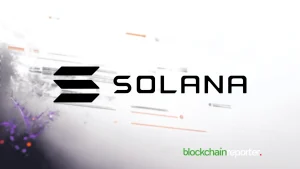
In a major policy shift, Donald Trump signed an executive order this week allowing cryptocurrency, private equity, and real estate to be included as investment options in U.S. 401(k) retirement accounts.
The move could unlock access to a $12 trillion retirement savings market for alternative asset managers, while also drawing criticism over the risk of exposing retirement funds to volatile and speculative markets like crypto. Proponents argue it will diversify portfolios and potentially increase returns for younger savers, while detractors warn of heightened fraud, high fees, and liquidity challenges.
The order signals the administration’s deepening ties to the crypto sector, moving from skepticism to active promotion of the U.S. as the “crypto capital of the world.” This policy change could increase mainstream exposure to cryptocurrencies and intensify demand for affordable digital assets, especially those priced under $1.
Historically, early adoption of low-cost tokens during periods of heightened regulatory acceptance has delivered significant upside during bull runs. In this context, newer entrants like Tapzi stand out for their innovative ecosystem design and multi-utility token model, offering use cases that go beyond speculation.
As traditional finance infrastructure opens up to crypto through retirement accounts, the potential for sub-$1 projects to gain both retail and institutional traction grows. This makes this a pivotal time to watch the underdog tokens before the hype cycle takes full effect.
7 Best Crypto To Buy Now Under $1
Below is a list of the best crypto to buy now under $1 that could rise soon:
- Tapzi (TAPZI)
- Tron (TRX)
- Cardano (ADA)
- Cronos (CRO)
- Ethena (ENA)
- Polygon (POL)
- Kaspa (KAS)
While people have mixed speculations around cryptocurrencies, various reasons make the above-mentioned best crypto coins to buy now worth a huge ROI. So, let’s check the details!
Tapzi (TAPZI)
Tapzi is an emerging Web3 gaming project that focuses on skill-based Player-vs-Player competition. It aims to provide a gaming environment where outcomes are determined by player ability rather than chance or inflationary token models.
The platform plans to launch with classic games such as chess, checkers, rock, paper, scissors, and tic-tac-toe, all integrated with a staking system. This structure will allow players to compete for prize pools while maintaining transparent and verifiable results through on-chain records.
Click Here to Join the $TAPZI Presale Before It’s Too Late!
The development roadmap begins with the launch of its website, whitepaper, and audited smart contracts in 2025, followed by a playable beta and a presale stage. The platform is expected to expand with features such as NFT-based cosmetic items, multilingual support, and integration with guilds and gaming communities.
A later phase includes a developer SDK to encourage third-party game creation and cross-chain deployment to networks like Ethereum and Polygon. These measures aim to create scalability, accessibility, and a sustainable player base.
The TAPZI token will serve multiple functions in the ecosystem. It will be used for staking in matches, rewarding tournament winners, purchasing digital cosmetics, and incentivizing developers. While not officially confirmed, community governance could also be introduced.
For investors, projects like Tapzi that align with broader adoption trends in gaming and blockchain infrastructure can present opportunities, particularly when entered at early pricing stages under one dollar.
Organically, growth could come from the combination of competitive gameplay, transparent systems, and a scalable developer ecosystem.
Tron (TRX)
Tron is a blockchain platform focused on creating a decentralized internet by enabling fast, low-cost transactions and supporting high-throughput decentralized applications (dApps).
Founded by Justin Sun in 2017, Tron operates on a Delegated Proof-of-Stake (DPoS) consensus mechanism, allowing it to process thousands of transactions per second with negligible fees. Its native token, TRX, is used for transaction fees, staking, governance, and accessing various dApps within the ecosystem.
Tron has become a major player in decentralized content sharing, gaming, and DeFi, with integrations that allow developers to build scalable applications without relying on centralized infrastructure. Its acquisition of BitTorrent has further expanded its ecosystem, enabling blockchain-based file sharing and streaming services.
TRX’s under-$1 valuation, combined with growing adoption in payments, stablecoin issuance, and entertainment platforms, makes it a strategic pick for those seeking both utility and affordability in their crypto portfolio.
Cardano (ADA)
Cardano is a third-generation blockchain platform designed to provide a secure, scalable, and sustainable infrastructure for decentralized applications and smart contracts.
Launched in 2017 by Ethereum co-founder Charles Hoskinson, Cardano is notable for its research-driven development approach, leveraging peer-reviewed academic work to guide its upgrades. It uses the Ouroboros Proof-of-Stake protocol, which is energy-efficient while maintaining strong security guarantees.
ADA, the platform’s native token, is used for staking, governance, and transaction fees, while also enabling participation in DeFi, NFT projects, and identity management solutions.
Cardano’s layered architecture separates transaction processing from smart contract execution, improving performance and reducing network congestion. Its ongoing development under the “Voltaire” and “Basho” phases aims to enhance governance and scalability, positioning Cardano for large-scale adoption in both developed and emerging markets.
Priced under $1, ADA offers investors a low-entry opportunity into a blockchain ecosystem with a strong focus on interoperability, sustainability, and real-world utility.
Cronos (CRO)
Cronos is the native token of Crypto.com’s blockchain ecosystem, designed to power transactions, staking, and rewards within its rapidly expanding network. Built on the Cosmos SDK and leveraging Ethereum Virtual Machine (EVM) compatibility, Cronos supports smart contracts and dApps while maintaining fast, low-cost transactions.
CRO plays a central role in Crypto.com’s suite of services, including its exchange, Visa debit card program, DeFi wallet, and NFT marketplace. Staking CRO can unlock benefits such as higher cashback rates, reduced trading fees, and exclusive event access.
Cronos’ growing ecosystem focuses on DeFi, GameFi, and Web3 applications, with strong cross-chain interoperability enabling asset transfers between Ethereum and Cosmos networks. Its under-$1 price point offers investors an affordable entry into a token backed by a major crypto brand with global reach and a clear roadmap for expansion.
As Crypto.com continues to secure partnerships and expand its user base, CRO’s utility-driven demand could grow substantially.
Ethena (ENA)
Ethena is an emerging decentralized finance protocol aimed at introducing innovative stablecoin and yield-generating products. Operating primarily on Ethereum, Ethena focuses on creating a scalable and transparent ecosystem where users can access stable on-chain savings without relying on traditional banking systems.
ENA, its native token, is used for governance, protocol incentives, and staking rewards. The project’s flagship product, USDe, is a synthetic dollar designed to maintain price stability through crypto-collateralized mechanisms and hedging strategies.
Ethena’s approach combines elements of decentralized stablecoins with structured financial instruments, appealing to both retail and institutional participants seeking predictable returns.
By integrating with DeFi protocols for lending, borrowing, and liquidity provision, Ethena aims to enhance capital efficiency while minimizing counterparty risk.
With an accessible under-$1 price, ENA provides early investors an opportunity to participate in a platform addressing one of the most critical needs in DeFi, reliable, scalable, and censorship-resistant stable assets.
Polygon (POL)
Polygon is a Layer-2 scaling solution for Ethereum, designed to improve transaction speeds and reduce costs while maintaining compatibility with Ethereum’s security and ecosystem.
Initially launched as MATIC, the network has rebranded to POL to align with its broader multi-chain strategy. Polygon uses a Proof-of-Stake consensus mechanism and supports multiple scaling solutions, including sidechains, zk-rollups, and optimistic rollups, enabling developers to choose the best fit for their applications.
Its native token, POL, is used for staking, governance, and paying transaction fees. Polygon has become a leading platform for DeFi, NFTs, and Web3 gaming, attracting major partnerships with companies like Meta, Nike, and Starbucks.
Polygon’s low transaction fees and developer-friendly environment have made it a preferred choice for scaling Ethereum-based dApps.
With an under-$1 valuation and a growing presence in enterprise blockchain adoption, POL offers a cost-effective entry into one of the most active ecosystems driving Ethereum’s scalability roadmap.
Kaspa (KAS)
Kaspa is a high-throughput Layer-1 blockchain that leverages a blockDAG (Directed Acyclic Graph) architecture to achieve extremely fast block confirmation times without sacrificing decentralization or security.
Unlike traditional blockchains that process blocks sequentially, Kaspa processes them in parallel, enabling high scalability and instant transaction visibility. The KAS token is used for transaction fees, network participation, and governance.
Built on proof-of-work but optimized for efficiency, Kaspa aims to deliver a seamless payment and application platform capable of supporting global-scale use cases. Its open-source development model encourages community contributions and rapid innovation.
Kaspa’s roadmap includes smart contract functionality, mobile wallet integration, and developer SDKs to broaden adoption.
Trading at under $1, KAS appeals to investors seeking exposure to next-gen blockchain infrastructure with significant speed and scalability advantages, making it a promising option in the race for high-performance decentralized networks.
Conclusion On The Best Crypto to Buy Now Under $1
The under-$1 cryptocurrency segment offers a diverse mix of established networks, scaling solutions, and emerging projects, each with distinct utilities and growth potential.
As regulatory landscapes shift and mainstream financial systems open doors to digital assets, early positioning in fundamentally strong projects becomes increasingly important.
Among these, Tapzi stands out for its focus on skill-based Web3 gaming, transparent on-chain mechanics, and a development roadmap that includes NFT integration, global tournaments, and cross-chain compatibility.
Such features align with both gaming trends and blockchain adoption. For investors seeking innovation tied to real-world engagement, Tapzi’s structured ecosystem presents a compelling consideration.









